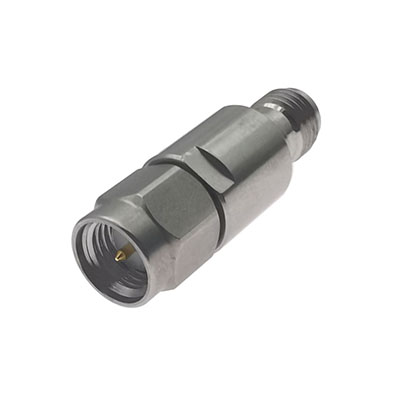Salt Spray Test on SMA 2W Attenuators
The salt spray test, also known as the salt fog test, is a widely used standardized method for testing the corrosion resistance of materials and surface coatings. It involves subjecting a test specimen to a mist of saltwater in a controlled environment for a specified period of time. The objective of this test is to determine the effectiveness of the material or coating in protecting against corrosion.
RF ONE, a leading manufacturer of RF components, recently conducted a salt spray test on their SMA 2W attenuators per MIL-STD-202G Method 101, Condition B. In this article, we will discuss the results of the test and its implications for the performance and reliability of the attenuators.
Test Procedure
The test was conducted by a third-party laboratory in accordance with MIL-STD-202G Method 101, Condition B. The test specimen was the SMA 2W attenuator manufactured by RF ONE. The test involved subjecting the attenuator to a continuous mist of saltwater for 48 hours in a controlled environment.
Results
After the 48-hour test, the attenuator was visually examined by the third-party laboratory for evidence of corrosion or pitting. There was no observable evidence of corrosion or pitting on the attenuator. The RF performance of the attenuator was also tested before and after the salt spray test, and there was no observable change in the VSWR and accuracy.
Conclusion
In conclusion, the salt spray test conducted on the SMA 2W attenuator manufactured by RF ONE per MIL-STD-202G Method 101, Condition B, indicates that the attenuator is highly resistant to corrosion in a saltwater environment. The test results provide assurance to users that the attenuator can maintain its performance and reliability in harsh environments.
Download Salt Spray Test Report of RF ONE Attenuator
- February 2026
- October 2025
- September 2025
- July 2025
- May 2025
- March 2025
- January 2025
- December 2024
- November 2024
- October 2024
- July 2024
- June 2024
- May 2024
- January 2024
- October 2023
- August 2023
- July 2023
- June 2023
- May 2023
- April 2023
- March 2023
- February 2023
- January 2023
- December 2022
- November 2022
- October 2022
- September 2022
- August 2022
- July 2022
- June 2022
- May 2022
- April 2022
- March 2022
- February 2022
- January 2022
- September 2021
- March 2021
- January 2021
- September 2020
- April 2020
- March 2020
- January 2020
- November 2019
- July 2019
- June 2019
- July 2018
- April 2018
- March 2018
- April 2017
- February 2016
- November 2015
- July 2015
- September 2014
- April 2014
